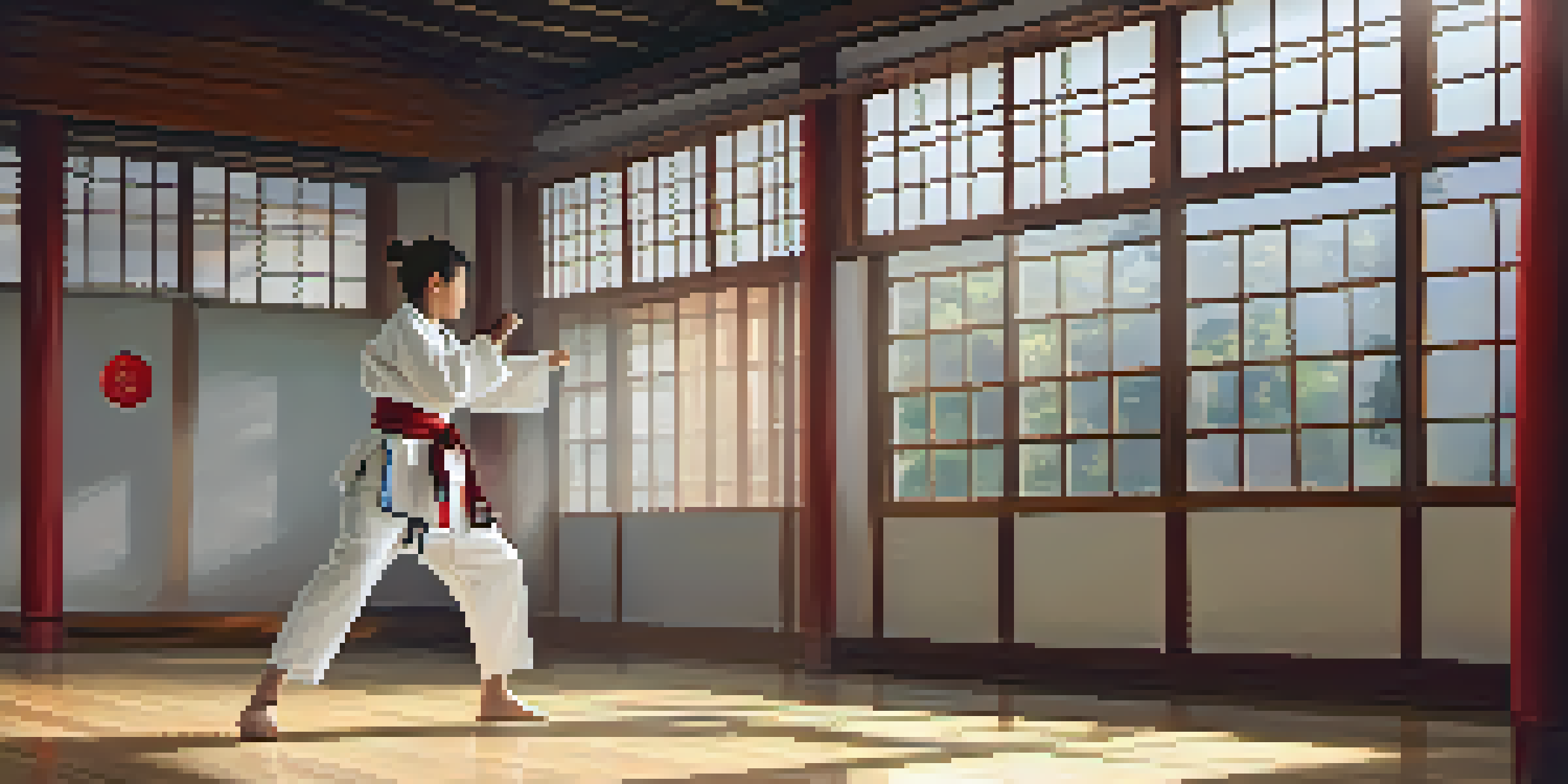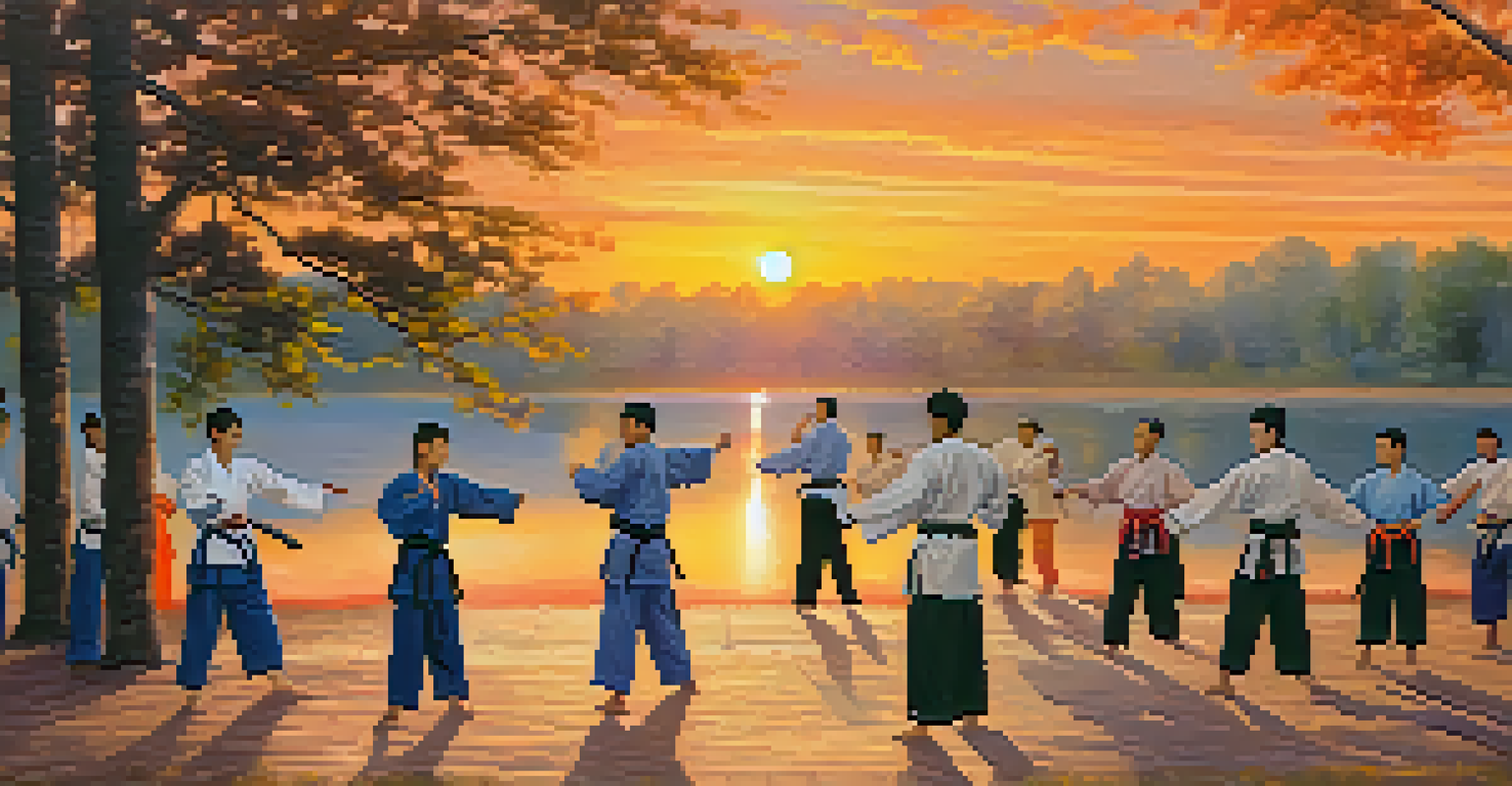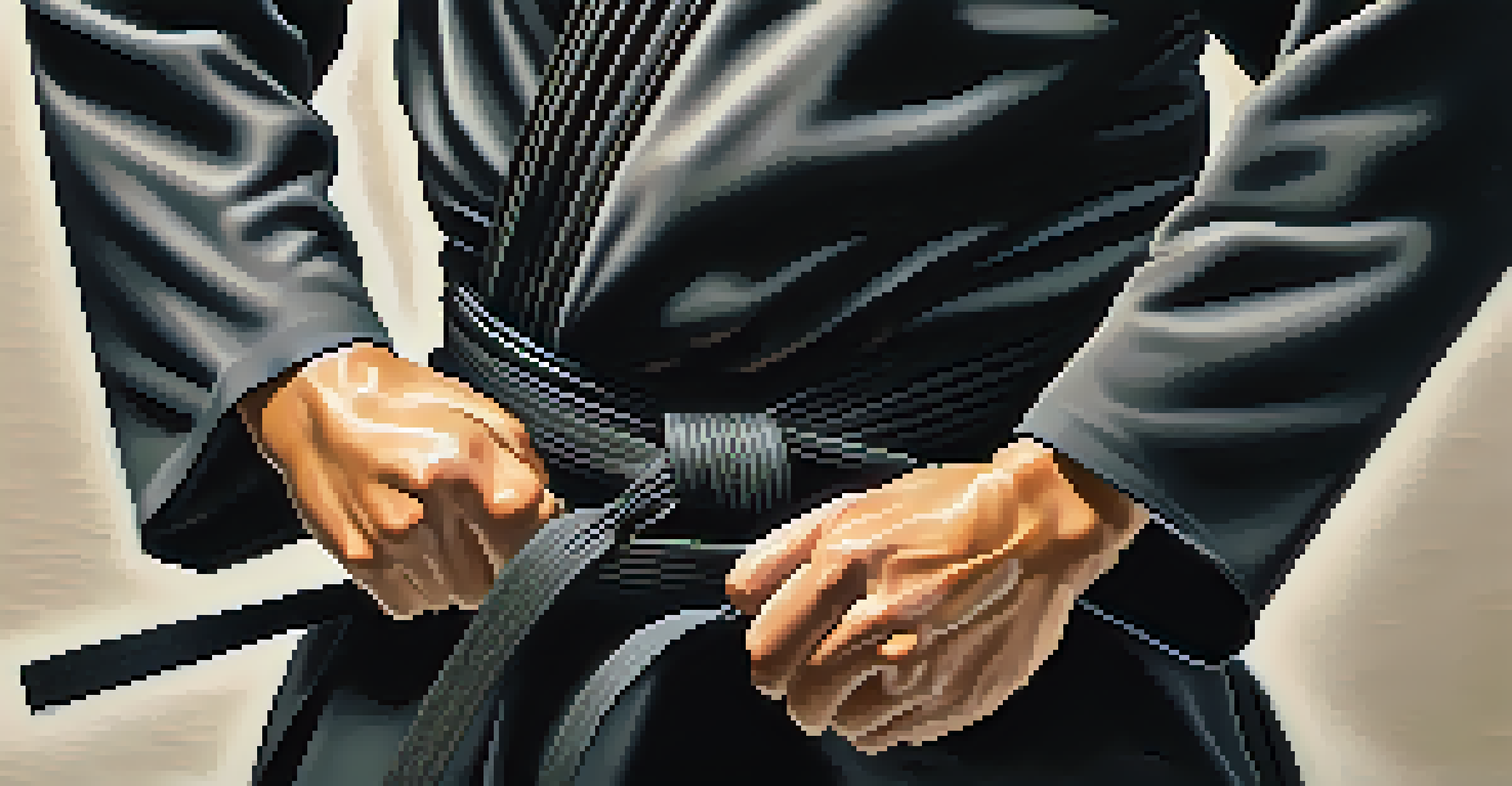Martial Arts Training: A Journey of Self-Discovery and Identity

Understanding the Essence of Martial Arts
Martial arts is more than just physical combat; it’s a holistic practice that encompasses discipline, respect, and self-control. Each style, from karate to jiu-jitsu, offers unique philosophies that encourage practitioners to look beyond the surface. This depth invites individuals to explore their true selves, often leading to profound personal insights.
The ultimate aim of martial arts is not having to use them.
As you step onto the mat, you’re not just learning techniques; you’re embarking on a journey that challenges your limits. Whether you’re a novice or an expert, the path of martial arts reveals layers of identity that you may not have been aware of. It’s a space where physical prowess meets mental fortitude, creating an environment ripe for self-discovery.
Ultimately, martial arts serves as a mirror reflecting our strengths and weaknesses. Through training, individuals learn to embrace their vulnerabilities while celebrating their achievements, fostering a sense of identity that is both empowering and transformative.
The Role of Discipline in Personal Growth
Discipline is a cornerstone of martial arts training and plays a vital role in personal development. Regular practice instills habits that extend far beyond the dojo, influencing daily life in numerous positive ways. This structured environment teaches the importance of commitment and consistency, essential traits for achieving any goal.

For many, the rigorous training regimen becomes a metaphor for life’s challenges. Each punch, kick, or grappling maneuver requires focus and perseverance, reminding practitioners that success often comes after repeated failures. This realization fosters resilience, encouraging individuals to tackle obstacles with newfound determination.
Martial Arts Foster Personal Growth
Through discipline and training, martial arts encourage individuals to confront challenges, build resilience, and develop a strong sense of self.
Moreover, the discipline cultivated through martial arts can lead to improved mental clarity and emotional stability. As students navigate the complexities of training, they learn to manage stress and channel their energy positively, which can enhance their overall well-being and self-identity.
Building Confidence Through Overcoming Challenges
One of the most remarkable aspects of martial arts training is its ability to build confidence. Every new technique mastered and every sparring match faced head-on contributes to a growing sense of self-assurance. As practitioners push their boundaries, they develop a belief in their capabilities that spills over into other areas of life.
In martial arts, the strongest technique is the one that is practiced the most.
This journey often involves confronting fears, whether it’s the fear of failure, injury, or embarrassment. Each time a student steps onto the mat, they confront these fears, transforming them into stepping stones for growth. Over time, this process helps individuals realize that they are stronger and more resilient than they once believed.
Ultimately, the confidence gained through martial arts training empowers individuals to take on new challenges outside the dojo. Whether it’s speaking in public, pursuing a new career, or simply asserting oneself in daily situations, the self-belief fostered through martial arts can be life-changing.
Martial Arts and Emotional Intelligence
Martial arts training offers a unique avenue for developing emotional intelligence. As practitioners engage in partner drills and sparring, they learn to read body language, anticipate movements, and respond appropriately. These skills translate into better interpersonal relationships and an enhanced understanding of others.
The emotional aspect of martial arts extends to managing one’s own feelings, especially during intense training sessions. Students learn to channel adrenaline and frustration into focus and determination, which fosters emotional regulation. This ability to control emotions is invaluable in both personal and professional scenarios.
Community Builds Lasting Bonds
The camaraderie found in martial arts creates a supportive network that nurtures personal development and fosters accountability among practitioners.
Additionally, the camaraderie built within martial arts communities creates a supportive environment for sharing experiences and emotional growth. Practicing with partners helps individuals build empathy and compassion, reinforcing the idea that martial arts is as much about mental and emotional development as it is about physical prowess.
Finding Community and Belonging in Martial Arts
The sense of community found in martial arts training is one of its most rewarding aspects. Whether in a small dojo or a large martial arts academy, the bonds forged through shared experiences create a sense of belonging. This camaraderie often becomes a support network that nurtures personal growth and identity.
Training with others encourages teamwork and collaboration, reinforcing the idea that everyone is on a journey together. Celebrating achievements, whether big or small, fosters a collective spirit that motivates individuals to strive for their personal best. The friendships formed can last a lifetime, creating a powerful support system.
Moreover, being part of a martial arts community instills a sense of accountability. Practitioners encourage one another to show up, work hard, and push through challenges, which can be incredibly motivating. This shared commitment helps individuals stay focused on their personal journeys of self-discovery.
The Impact of Mindfulness in Training
Mindfulness is an essential component of martial arts training, enhancing both physical performance and mental awareness. Practitioners learn to be present in the moment, focusing on their breathing and movements, which cultivates a deeper connection between mind and body. This heightened awareness can lead to improved concentration and clarity of thought.
Through mindfulness, students develop a greater understanding of their emotions and reactions. As they practice techniques, they learn to observe their thoughts without judgment, fostering a sense of calm and resilience. This practice can be transformative, allowing individuals to respond thoughtfully rather than react impulsively in stressful situations.
Mindfulness Enhances Training
Incorporating mindfulness into martial arts practice promotes greater emotional regulation and improves overall mental clarity and focus.
Incorporating mindfulness into training not only enhances martial arts performance but also enriches everyday life. The skills learned on the mat can be applied to various aspects of life, from managing stress to improving relationships, making mindfulness a key element in the journey of self-discovery.
Embracing Change and Personal Transformation
Martial arts training is often a catalyst for profound personal transformation. As practitioners learn new techniques and face their fears, they undergo significant changes in perspective and identity. This journey encourages individuals to embrace change, fostering a mindset that is adaptable and open to new experiences.
Along the way, many practitioners find themselves shedding old beliefs and habits that no longer serve them. The discipline and confidence gained through training inspire a reevaluation of personal goals and aspirations. This newfound clarity can lead to life-altering decisions that align more closely with one's true self.

Ultimately, the journey of martial arts training is a continuous cycle of growth and transformation. Each belt earned, challenge overcome, and lesson learned contributes to a richer understanding of oneself, making martial arts a powerful vehicle for personal discovery and identity formation.